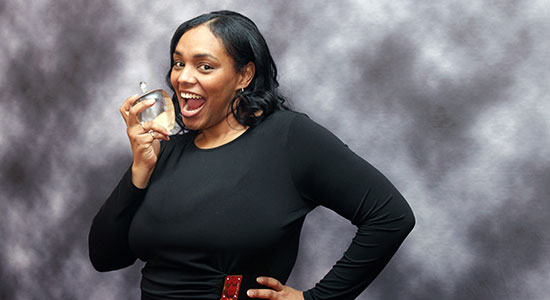
You might not realize it, but there is likely at least one young lawyer out there who considers you a mentor. Mentees do not wear name tags. They do not go around asking to be mentored. But they are out there, and they are constantly looking to you for answers, usually without even asking a question. They are searching the document system for examples so they can emulate your writing. They are making note of what time you leave and whether you log in at night or send emails over the weekend. They are hanging on your words in meetings. Without even knowing it, you are making a difference in the experience of a young lawyer. Whether that difference is positive or negative depends on you.
Why Don’t More of Us Mentor?
It is no surprise that support from successful lawyers contributes to the retention and advancement of those who come after them. And yet, lack of mentoring continues to be cited as one of the reasons associates leave their firms – or law practice altogether. So what gives? If we know it helps, why do so many of us neglect to mentor? Based on my experience, one of two things is the cause.
 Stacy A. Alexejun, Marquette 2009, is an attorney with Quarles & Brady, Madison, focusing her practice in product liability defense and intellectual property litigation. Alexejun received the 2019 Outstanding Mentor Award from the State Bar of Wisconsin Young Lawyers Division.
Stacy A. Alexejun, Marquette 2009, is an attorney with Quarles & Brady, Madison, focusing her practice in product liability defense and intellectual property litigation. Alexejun received the 2019 Outstanding Mentor Award from the State Bar of Wisconsin Young Lawyers Division.
The first is akin to the cause of “parking lot wars.” Research shows that we actually take longer to pull out of a parking spot when we know that someone is nearby waiting for it. Subconsciously or not, we have the tendency to project our own challenges onto others. If it was difficult for us to find a parking spot, we want it to be difficult for the next person, too. This same type of mentality exists among lawyers (and other professionals). There are some lawyers who, having achieved success themselves, actually take steps to make it more difficult for the more junior lawyers who come after them. These lawyers forged the path, and they bemoan the idea that others may have it “easier.”
The second is more straightforward. As lawyers, we are often so overwhelmed by our own responsibilities and pressures that we simply do not think about our newer peers down the hall. Right or wrong, we view mentoring as a time commitment. Unlike client work, mentoring lacks an immediate return on investment, so it gets put on the back burner.
The good news is that it does not have to be this way. We can all be part of the solution, and we can start today. Mentoring does not require a formal program or title. You do not need a budget. If you care about the direction of your workplace and the legal profession, you are already most of the way there. Mentoring is caring dressed up.
I graduated from law school 10 years ago, and I have experienced mentoring from both sides. Reflecting on my own experiences as both a mentor and a mentee, I have accumulated the following guidelines on how to be a successful mentor.
1) Lead by Example
If you choose to do nothing else, lead by example. Stop the cycle of making an already challenging profession more difficult. Be the lawyer and coworker who you want others to be, and you will earn the respect of those who follow you. Being a good leader does not take any extra time, just forethought. Practice the time-management skills that you expect of other lawyers. Avoid unnecessary fire drills. If you are someone who strives for better work-life balance, demonstrate to the new moms and dads in your office that it is okay to go home before dinner. Provide the training and client face time that you wish you had as a new lawyer. In short, practice what you preach.
2) Maintain Confidentiality
Trust is paramount in a good mentoring relationship. If a new lawyer has the courage to confide in you, give him or her the respect of keeping the discussion confidential. If you are inclined to escalate an issue that your mentee brought to your attention, let him or her know, and ask for permission first.
3) Keep an Open Door
I mean this both literally and figuratively. Any coworker is going to interpret a closed door to mean that you do not want to be bothered. Unless you are on a call or running up against a crucial deadline, open your office door. It sends a message that you are available and willing to help.
We tend to forget what it feels like to be a new lawyer. There is a reluctance to ask questions. Millennials in particular are trained to look up answers themselves, and no one wants to look “dumb.” If a new lawyer senses that you are too busy or not interested in talking to him or her, that person is not likely to approach you again and, perhaps worse, will opt to spin his or her wheels instead.
Be the lawyer and coworker who you want others to be, and you will earn the respect of those who follow you.
4) Take the Initiative to Check In
We get distracted by our own commitments. We incorrectly assume that if a colleague has a question or needs help, he or she will just come and ask. That is often not the case. If it has been awhile since you have seen or heard from someone new in your office, stop by or send a message. Ask how he or she is doing. Do not assume that no news is good news.
5) Be an Active Listener
A mentee wants to hear what you have to say, but it is equally important that you ask about and appreciate his or her perspective. Ask for your mentee’s goals and how you can help. Advice – as opposed to action – might be all the help that your mentee needs or wants.
In giving advice, resist the urge to compare your mentee’s experience with your own or that of one of his or her peers. Over time, it becomes increasingly difficult to recall what it was really like for us as new lawyers, and we naturally inflate our own performance. More importantly, stressors are not created equally. For example, I have heard many more experienced lawyers lament how “easy” we have it these days. It usually comes in the context of discussing online legal research, electronic filing, or remote access. But keep in mind that experience is relative. Improvements in technology have come with an expectation of 24/7 availability, which simply did not exist in prior generations.
6) Get Outside the Office
There is nothing wrong with meeting at the office, but your mentee may feel more comfortable and candid over lunch or at happy hour. Get to know your mentee outside the confines of your jobs. It shows that you are invested and helps build trust. It can also help you understand the way your mentee thinks and acts at work. Likewise, sharing your own personal stories and interests will help humanize the mentoring relationship. Every one of us is more than only a lawyer.
7) Celebrate Milestones
Share your accomplishments, and help celebrate those of your mentee. Make note of work anniversaries. The best mentoring relationship is more than just problem-solving. If your mentee feels welcome enough to share not only concerns but also good news, you will know you are doing something right.
Who Is Making a Difference? Nominate an Outstanding Mentor
Honor a mentor who is doing outstanding work. Nominate them for the State Bar of Wisconsin Young Lawyers Division award. Nominations are due Feb. 14, 2020.
Know a mentor who helped you kick off your career? The State Bar of Wisconsin Young Lawyers Division (YLD) asks you to help it recognize the investment that your mentor has made in your future.
How to Nominate an Outstanding Mentor. The Outstanding Mentor Award honors a Wisconsin-licensed lawyer who has made an exceptional contribution to the life and career of a young lawyer. The nominee must have six or more years of practice experience, be a State Bar member, and have been in good standing with the State Bar for more than 12 months. Lawyers who currently sit on the YLD board or on the State Bar Board of Governors are not eligible for the award.
The nomination consists of a statement explaining how the nominee has positively affected the life of a young lawyer mentee. The statement may include how the mentor has:
- provided advice on legal, ethical, and client issues;
- helped to advance a mentee’s professional career;
- introduced the mentee to new lawyers and contacts; and
- provided support in the early stages of the mentee’s legal practice.
The YLD also welcomes a short biography of the candidate as well as any other materials that demonstrate the nominee’s mentorship accomplishments.

Pictured: Rochelle Johnson Bent displays a crystal apple awarded to her as the 2017 recipient of the Young Lawyers Division Outstanding Mentor Award. She is the first recipient of the award.
The First Outstanding Mentor Award: Rochelle Johnson Bent. The YLD presented its first Outstanding Mentor Award in 2017 to Rochelle Johnson Bent of Legal Aid Society of Milwaukee Inc. In nominating her, T.R. Williams wrote, “She is a new attorney’s dream. She’s full of information, down to earth, and a standout practitioner of family law.”
In accepting the award, Johnson Bent explained that when she first began practicing, mentorship was vital for her. “So my goal was always to give back and do the same thing with the young attorneys that I encounter.” She suggests lawyers look for those who may need help, “Be the mentor that you seek.”
Nominations are Due Feb. 14, 2020. Email nominations to Michelle Sherbinow (msherbinow@wisbar.org) and Ben Roovers (broove@milwaukee.gov).
Meet Our Contributors
What are you reading now? Do you have a favorite author or genre?
 I am reading the Harry Potter series for the first time. I just finished the fourth book. I do not really like the fantasy genre, but last summer, I got to see the magnificent Sydney Symphony Orchestra perform the score from one of the movies, and it piqued my interest to finally see what all the fuss is about. I will turn to the film series next. My visit to the Sydney Opera House aside, I never see a movie before reading the book. I feel like I owe that to the author.
I am reading the Harry Potter series for the first time. I just finished the fourth book. I do not really like the fantasy genre, but last summer, I got to see the magnificent Sydney Symphony Orchestra perform the score from one of the movies, and it piqued my interest to finally see what all the fuss is about. I will turn to the film series next. My visit to the Sydney Opera House aside, I never see a movie before reading the book. I feel like I owe that to the author.
Reading is one of my greatest joys. I have a strong preference for nonfiction, and I like memoirs in particular. I have a difficult time engaging in a story if I know the author made it up. I make a point to read every night before bed, even if only for 15 minutes. My only criteria is that it not be work related.
Stacy A. Alexejun, Quarles & Brady, Madison.
Become a contributor! Are you working on an interesting case? Have a practice tip to share? There are several ways to contribute to Wisconsin Lawyer. To discuss a topic idea, contact Managing Editor Karlé Lester at (800) 444-9404, ext. 6127, or email klester@wisbar.org. Check out our writing and submission guidelines.
